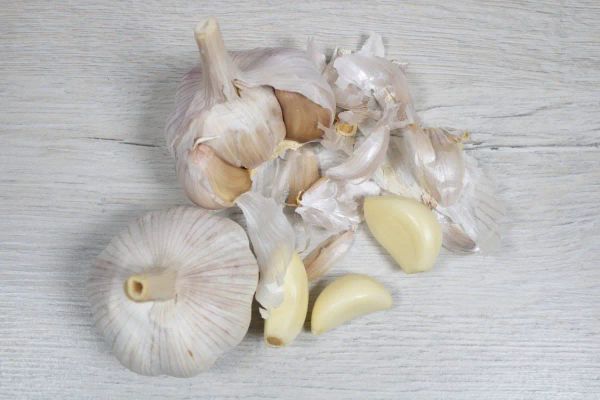
Nopal, also known as prickly pear cactus, has been used in traditional medicine and cuisine in Mexico for centuries. But did you know that nopal offers a wide range of health benefits that can improve your overall well-being? From aiding digestion to supporting weight loss, nopal is a nutrient powerhouse packed with essential nutrients and healing properties. In this article, we will explore the diverse ways that nopal can benefit your health and how you can easily incorporate it into your diet.
Nopal is rich in vitamins, minerals, and antioxidants, making it a nutritional powerhouse. It contains essential vitamins like A, C, and K, which are crucial for immune function, skin health, and blood clotting. Additionally, nopal is packed with minerals like calcium, magnesium, and potassium, which play a vital role in maintaining bone health, regulating blood pressure, and supporting proper muscle function. By adding nopal to your diet, you can fill nutrient gaps and promote overall health.
One of the well-researched benefits of nopal is its ability to regulate blood sugar levels. Nopal contains high levels of dietary fiber, which slows down the absorption of sugar in the bloodstream. This can prevent sharp spikes in blood sugar levels and is particularly beneficial for individuals with type 2 diabetes. Studies have shown that consuming nopal can reduce post-meal blood glucose levels, helping to stabilize sugar levels throughout the day.
Nopal’s high fiber content also plays a crucial role in supporting digestive health. The insoluble fiber found in nopal adds bulk to stool and promotes regular bowel movements, reducing the risk of constipation. Furthermore, fiber supports the growth of healthy gut bacteria, which are essential for maintaining a balanced digestive system. By regularly consuming nopal, you can improve your digestive function and support long-term gut health.
If you’re looking to lose weight or maintain a healthy weight, nopal is an excellent addition to your diet. It is low in calories but high in fiber, promoting a feeling of fullness and reducing the likelihood of overeating. The fiber in nopal slows down digestion, keeping you satiated for longer periods and helping you resist unhealthy cravings. Additionally, the antioxidants in nopal may enhance metabolism, further supporting your weight loss efforts.
Chronic inflammation is a contributing factor to many diseases, including heart disease, arthritis, and cancer. Nopal contains several anti-inflammatory compounds, including flavonoids and polyphenols, which help reduce inflammation throughout the body. Regular consumption of nopal can help alleviate symptoms of inflammatory conditions, such as joint pain, and may lower the risk of developing chronic diseases.
Nopal offers numerous cardiovascular benefits, particularly in reducing cholesterol levels. Studies suggest that nopal can help decrease levels of LDL cholesterol (the “bad” cholesterol) while increasing levels of HDL cholesterol (the “good” cholesterol). This balance is critical in preventing the buildup of plaque in the arteries, which can lead to heart disease. Furthermore, the potassium in nopal helps regulate blood pressure, reducing the strain on the heart and lowering the risk of heart attacks and strokes.
Nopal is an excellent source of vitamin C, a powerful antioxidant that plays a critical role in immune health. Vitamin C stimulates the production of white blood cells, which are essential for defending the body against infections and illnesses. By consuming nopal, you can boost your immune system, helping you fight off common colds, infections, and other illnesses more effectively.
The combination of high water content and fiber in nopal makes it an effective natural detoxifier. It aids the body in flushing out toxins through the digestive tract and supports liver function, which is essential for detoxification. Regular consumption of nopal can help cleanse your system and support the natural elimination of harmful substances from your body.
Nopal’s abundance of vitamins and antioxidants contributes to healthier skin. Vitamin C, in particular, plays a role in collagen production, which is necessary for maintaining skin elasticity and reducing signs of aging. Additionally, the antioxidants in nopal protect the skin from environmental damage, such as UV radiation and pollution, which can cause premature aging and wrinkles.
While research is still ongoing, some studies suggest that the antioxidants in nopal, particularly flavonoids, may help prevent the development of certain cancers. These compounds protect cells from oxidative stress and free radical damage. Incorporating nopal into your diet could contribute to cancer prevention.
If you’ve experienced the aftereffects of alcohol consumption, nopal may offer some relief. It has been traditionally used to reduce hangover symptoms like nausea, dry mouth, and headaches. Nopal’s ability to reduce inflammation and provide hydration may play a role in alleviating these symptoms, making it a natural remedy for those rough mornings after a night of celebration.
In conclusion, nopal cactus is not just a unique ingredient; it is a powerful superfood with a wealth of health benefits. From regulating blood sugar to supporting heart and digestive health, nopal can be an invaluable addition to a balanced diet. Whether you consume it fresh, cooked, or in supplement form, nopal offers a wide range of nutrients and healing properties that contribute to overall wellness. As with any natural remedy, it’s important to incorporate nopal in moderation and consult with a healthcare provider if you have any specific health conditions. Discover the incredible benefits of nopal and let it become a part of your wellness routine.





